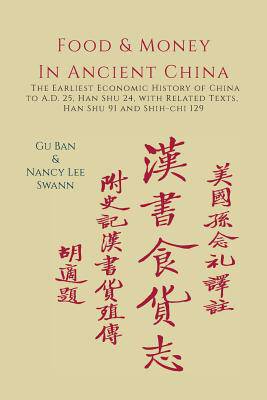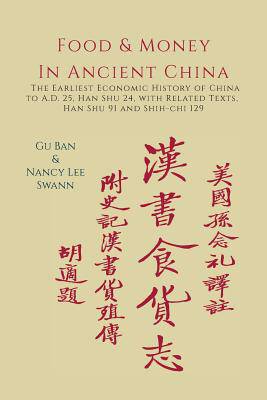
- Retrait gratuit dans votre magasin Club
- 7.000.000 titres dans notre catalogue
- Payer en toute sécurité
- Toujours un magasin près de chez vous
- Retrait gratuit dans votre magasin Club
- 7.000.000 titres dans notre catalogue
- Payer en toute sécurité
- Toujours un magasin près de chez vous
Food & Money in Ancient China
The Earliest Economic History of China to A.D. 25 [Han Shu 24]
Gu Ban
Livre broché | Anglais
40,45 €
+ 80 points
Description
2013 Reprint of 1950 Edition. Full facsimile of the original edition, not reproduced with Optical Recognition Software. There are four ancient histories of China. The second oldest is the Han Shu, the "Book of Han," which is divided into the Former Han and Later Han dynastic histories. Chapter 24 of the Former Han Shu, dealing with food and money, comprises the bulk of this scholarly work. The value of the "Book of Han" lies in the fact that it was written shortly after the period which it describes (the Former Han Dynasty covers the period from 206 B.C. to A.D. 19). The historian had access to materials which have since been lost and, what is more, was in a position to reproduce faithfully the spirit of the era. The shortcomings are, from an economist's point of view, the lack of systematic specific in- formation on prices and on forms of economic activity. Nevertheless, Han Shu 24 makes interesting reading. The author(s) recorded the then prevalent belief that agriculture is the basis of all endeavor and that trade is a somewhat superfluous, and often wicked, enterprise. Another idea preserved for posterity is that the forces of the market have to be contained. During the Han period a number of emperors instituted complicated price-equalization programs for agricultural commodities, and one of the early Han rulers unequivocally recognized that the demand for agricultural commodities was highly inelastic. The orientation of this probably definitive translation is toward the Chinese language scholar and, in a lesser way, toward the historian. The additional commentaries, of which there are a number in the book, are slanted the same way.
Spécifications
Parties prenantes
- Auteur(s) :
- Editeur:
Contenu
- Nombre de pages :
- 588
- Langue:
- Anglais
Caractéristiques
- EAN:
- 9781614274957
- Date de parution :
- 02-10-13
- Format:
- Livre broché
- Format numérique:
- Trade paperback (VS)
- Dimensions :
- 156 mm x 234 mm
- Poids :
- 893 g







